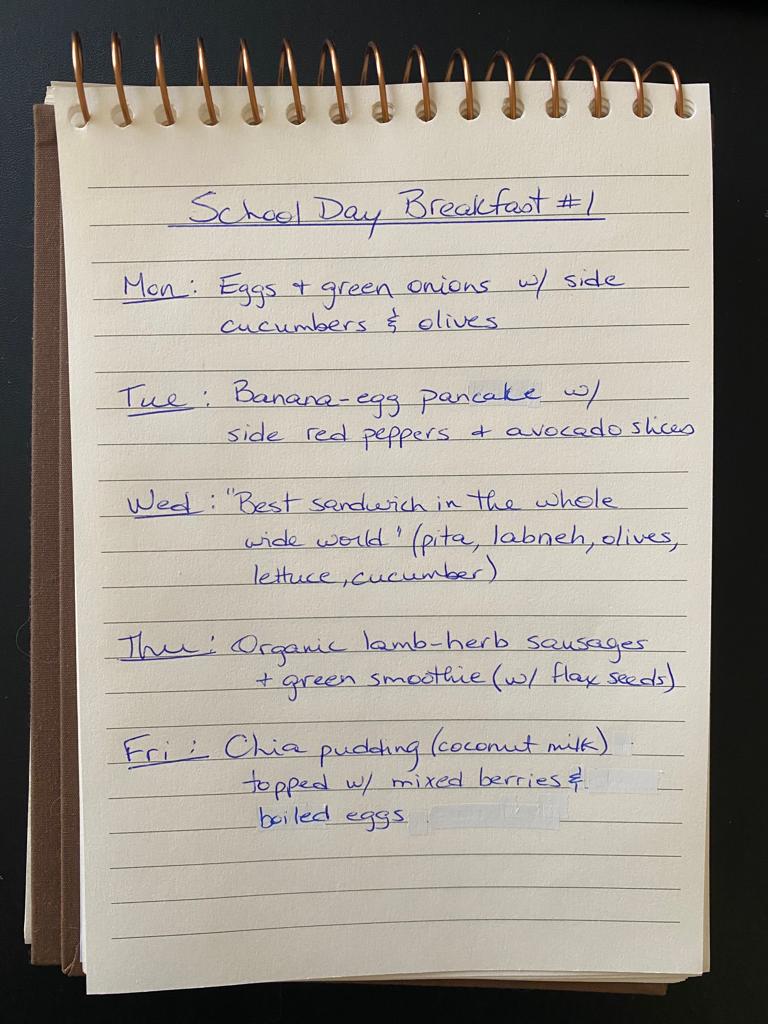-
Easy, Healthy, School Day Breakfast Ideas
It was back-to-school for my kids today and the routine of breakfast and dinner meal planning has officially resumed! (it’s a bitter-sweet feeling )I know many people struggle with the question of “what to eat” for breakfast, but if you watched the Beginner’s Health Roadmap, you know all about my VPF principle and recommendation of ensuring there’s a protein and fat for breakfast as a minimum to help keep you satiated longer, balance blood sugar levels, and minimize cravings later on in the day.
The same applies to our kiddos! So I thought it might be helpful to share my “VPF-inspired” school day breakfast meal ideas for the week ahead with all of you:
If this is helpful, and you’d like to see more of these, please let me know in the comments below. Maybe I can dedicate a new “space” called Meal Ideas where we can all share our meal plans for the week, and take inspiration from each other… because let’s face it. This task can surely get monotone doing it alone! What do you think?
ps. I also want to apologize in advance for my chicken-scratch hand writing. My sisters who have beautiful calligraphy hand writing always made fun of it… ♀️
Log in to reply.
